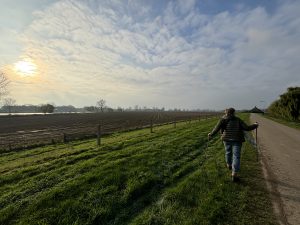Book cover image, “Widow maker” by Darrin Hartman
My book will come out in hardcover, softcover and in electronic format by early 2021!
It will be published with Routledge
Writing the self in bereavement: a story of love, spousal loss, and resilience
By Reinekke Lengelle
Writing the self in bereavement is balm for readers experiencing grief and loss. The book tells the story of the death of the author’s spouse and the year and a half following his diagnosis, illness, and passing. In facing this profound loss, Lengelle uses her abilities as a researcher, poet, and professor of therapeutic writing to tell a heartfelt and fearless story about her grief.
The book demonstrates powerfully that writing can be a companion in bereavement. It uses and explains the latest research on coming to terms with spousal loss, without being pedantic or prescriptive. The author explores a number of themes that are underrepresented in existing resources: how one deals with anger, what a healthy response to unfinished business with the deceased might be, continuing conversations with the beloved (even for agnostics and atheists), ongoing sexual desire, and secondary losses.
Research shows that re-partnering rates for widows are astonishingly low, but that is not cause for pessimism – a good life can be made without a partner, and pleasure and new romance are possible. There are few books where an author successfully combines a personal story, heart-rending poetry, up-to-date research on grief, and an evocative exploration of taboo topics in the context of widowhood.
This book is useful for those grieving a spouse, or those supporting others in bereavement. Researchers on death and dying, grief counsellors, and autoethnographers may also be drawn to this resonant resource about love and loss.
“As human beings, we seek a life story we can make sense of, and that can make sense of us. In this autoethnography of loss, as lucid as it is captivating, Reinekke Lengelle not only reveals but also reflects candidly on her grief over her partner’s death, and her reconstruction of their relationship in its wake. More than a mirror of her bereaved soul, her writing is also a magnifying lens that artfully brings into sharper definition the human drama of love and loss, and the power of poetry and prose to foster its transformation.”
—Robert A. Neimeyer, PhD, Editor of Death Studies and Techniques of Grief Therapy



